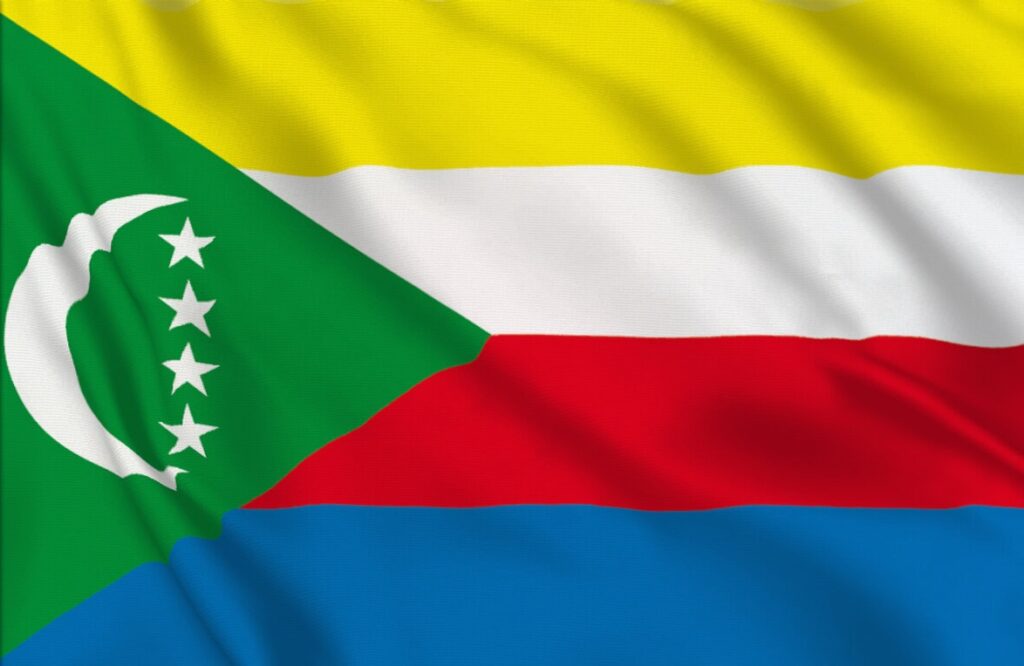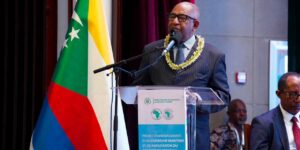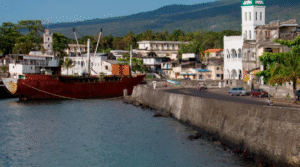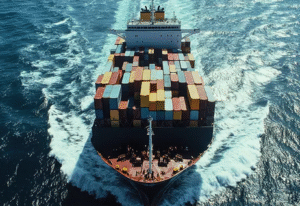Republic of Comoros, East Africa, Launches $137 Million Maritime Corridor Project: Supported by African Development Bank

The Union of the Comoros has taken a bold step toward transforming its maritime future with the launch of the Maritime Corridor and Regional Trade Facilitation Project, a $137 million initiative backed by the African Development Bank Group (AfDB). The project, unveiled in Moroni on October 27 under the leadership of President Azali Assoumani, aims to modernize the nation’s port infrastructure, enhance regional trade, and cement the archipelago’s role as a key logistics hub in the Indian Ocean.
Funded primarily through a $135 million grant from the African Development Fund and an additional $2 million from the Transition Support Fund, the project represents one of the most ambitious infrastructure undertakings in Comorian history. Co-financing partners are the World Bank, Islamic Development Bank, French Development Agency, European Union and European Investment Bank, are expected to contribute a combined $110 million, bringing the total investment close to a quarter of a billion dollars. Building a Maritime Nation

“The maritime corridor we are launching today is an eloquent testimony to our ability to build a resilient nation, fully integrated into regional and continental dynamics,” President Assoumani declared during the ceremony. “It is a living symbol of our openness to the world. A bridge between people, a vehicle for trade, cooperation, and shared prosperity.”
Located strategically in the Mozambique Channel, the Comoros has long been a maritime crossroad between Africa and Asia. Yet, decades of underinvestment and limited infrastructure have constrained its potential. The new corridor seeks to change that by modernizing ports, improving customs operations and strengthening inter-island connectivity. Breeding economic and social ripples.
Beyond its physical infrastructure, the project carries deep social and economic implications. According to the AfDB, it aligns with the Comoros Emerging Plan 2030 and the Bank’s Ten-Year Strategy (2024–2033), focusing on sustainability, resilience, and inclusivity.

Thousands of jobs are expected to be created, especially for young people and women, as new opportunities emerge in shipping, logistics, and fisheries. Improved port facilities could also boost agricultural and fisheries value chains, helping small producers reach export markets more efficiently. This flagship project will contribute to developing value chains in agriculture and fisheries, while creating economic opportunities for young people and women, according to the AfDB’s Country Programme Advisor. This is a boost for Comorian families and communities.
To many of the Comorian families, whose livelihoods depend on small-scale trade and fishing, the improved maritime network could reduce transport costs and enhance food security. Better port access means more reliable trade routes. Which translates into lower prices, more goods and a stronger local economy.
The Minister of Maritime and Air Transport, Yasmine Hassane Alfeine, emphasized that the project also reflects a long-term vision. In Yasmine’s word – “thanks to this strengthened cooperation, we are taking a new step in modernizing our port and maritime infrastructure, with the prospect of creating a special economic zone.”
A broader political and cultural shift is ushering in developmentally. Politically, the maritime corridor symbolizes a renewed partnership between the Comoros and its development allies, reinforcing the country’s stability and integration within the African Union and the Indian Ocean region. Culturally, it reaffirms the islands’ historic identity as a meeting point of African, Arab and Asian civilizations, now reimagined through economic cooperation and shared prosperity.

Since 1977, the African Development Bank Group has financed nearly 40 operations in the Comoros, totaling about $530 million across transport, energy, agriculture, and governance sectors. This latest initiative marks a continuation of that long-term partnership, underscoring a vision of sustainable, inclusive, and resilient development for the archipelago.
As Comoros positions itself to become a maritime hub between continents, the project stands as more than an infrastructure milestone. It is a promise of transformation for families, communities, and a nation looking to the horizon with renewed hope.






